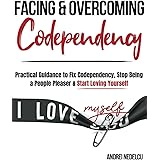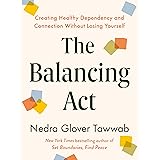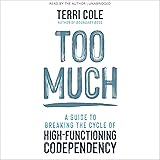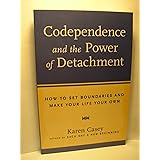Imagine the constant ache of worry, the slow erosion of trust, and the crushing weight of financial insecurity. These burdens often settle on those closest to someone battling a problem gambling addiction. It is a profoundly difficult situation. The companion video above offers vital initial guidance. It outlines strategies for those navigating this challenging journey. Here, we delve deeper into these crucial areas. We provide expanded context and expert insights. Understanding the intricate dynamics of gambling pathology is essential.
Navigating the Labyrinth of Problem Gambling
Gambling addiction, or pathological gambling, is a complex behavioral disorder. It impacts not only the individual but also their entire support system. Family members and friends often experience significant trauma. Financial strain is common. Emotional exhaustion frequently occurs. It is critical to recognize the signs. It is also important to understand your role. While recovery is a personal choice, your support is invaluable.
However, support must be delivered wisely. Unwittingly enabling behavior can perpetuate the cycle. Boundaries must be established firmly. Self-preservation is not selfish; it is essential. Your well-being directly influences your capacity to help. The journey is often arduous. It demands resilience and informed action.
Prioritizing Your Own Well-being
The video above rightly stresses the importance of self-care. It is a foundational principle in addiction support. Caregivers often neglect their own needs. This oversight can lead to severe burnout. Emotional and financial protection must be maintained. You are not responsible for the addiction itself. Your life should not be dictated by it.
Consider the analogy of an aircraft safety briefing. Oxygen masks are to be secured first on oneself. Only then can assistance be provided to others. This principle applies directly to caregivers of individuals with gambling addiction. Your mental and financial health are paramount. Adequate sleep is necessary. Healthy eating patterns are important. Engaging in stress-reducing activities is vital. Without personal fortitude, sustained support becomes impossible.
Emotional boundaries are also crucial. Empathy is powerful. However, it should not lead to co-dependency. You might feel immense guilt. You might also experience shame. These emotions are common. They can be overwhelming. Seeking individual therapy can be beneficial. It helps in processing these complex feelings. A professional can offer strategies for emotional detachment. This detachment allows for clearer decision-making.
Building a Support Network: You Are Not Alone
Isolation is a common experience for caregivers. The burden of secrecy can be immense. Many loved ones feel embarrassed. They might hesitate to discuss the problem. The video emphasizes finding your own support. This step is incredibly empowering. Connecting with others facing similar struggles offers solace. It provides validation. Shared experiences build strength.
Support groups are excellent resources. Organizations like Gam-Anon, a 12-step program for those affected by someone else’s gambling problem, offer a structured environment. These groups provide anonymity. They facilitate peer support. Insights into enabling behaviors are often shared. Coping mechanisms are discussed openly. This collective wisdom is invaluable. It helps caregivers feel understood. It reduces feelings of isolation.
Furthermore, consulting with a mental health professional can provide personalized strategies. A therapist can help you understand the pathology of addiction. They can equip you with communication tools. These tools are vital for difficult conversations. Family therapy might also be considered. This approach addresses the systemic impact of the addiction. It helps rebuild fractured family dynamics. Imagine if every family member understood their role. Healing becomes a collective effort.
Establishing Financial Boundaries and Safeguards
Money is often the central element in problem gambling. The video highlights the critical need for financial boundaries. This can be a contentious area. It requires courage and firm resolve. The gambler may react with anger or manipulation. However, protecting household finances is non-negotiable.
Taking control of shared financial accounts is a practical step. This may involve credit cards and bank accounts. Joint oversight ensures fiscal accountability. It reduces opportunities for immediate access to funds. Safeguarding your personal credit rating is also paramount. A spouse’s gambling debts can sometimes affect joint credit. Legal advice might be sought. This ensures full protection of your assets. It protects future financial stability.
Moreover, establishing a clear household budget is important. All income and expenses should be meticulously tracked. This transparency helps identify financial discrepancies. It can prevent further borrowing. A strict “no-loan” policy must be implemented. Every loan, however small, can be seen as enablement. It delays the gambler’s confrontation with consequences. Imagine a scenario where all financial access is curtailed. The gambler is then forced to face their reality directly.
Developing a Plan for Money Requests
Problem gamblers often become skilled manipulators. They may employ various tactics to secure funds. These can range from pleading to threats. The video advises having a pre-determined plan. This plan helps maintain composure. It prevents impulsive reactions. Consistency is key in these interactions.
A firm, rehearsed response can be prepared. This response should be delivered calmly. It should reiterate your boundaries. For example, “I understand you are in a difficult situation. However, I cannot provide you with money. Support can be found through professional help.” This approach shifts responsibility back to the gambler. It avoids engaging in arguments. It also avoids emotional blackmail.
It is important to understand the concept of enabling. Providing funds, covering debts, or making excuses all enable the addiction. They remove natural consequences. Consequences are powerful motivators for change. Allow the gambler to experience these consequences. This difficult love is often the catalyst for seeking help. Consider the long-term benefit. Short-term relief often hinders true recovery.
Constructive Engagement: The ‘Do’s’ of Support
The video outlines six constructive actions. These actions promote healing and recovery. Each ‘do’ should be implemented with thoughtful consideration. They require patience and consistency.
-
Do Talk About the Issue Calmly: Choose an opportune moment for discussion. Stressful environments are counterproductive. A calm demeanor fosters open communication. Express your feelings using “I” statements. For example, “I feel worried when I see your gambling activity.” This approach avoids accusatory language. It focuses on the impact. It prevents defensiveness.
-
Do Seek Support: As discussed, support groups and professional counseling are vital. They offer strategies. They also provide emotional buffering. It is not a solo endeavor. Family members should explore all available resources.
-
Do Explain Your Perspective: Clearly articulate the consequences. Describe how the gambling affects you. Detail its impact on the family. This personal testimony can be powerful. It provides a mirror to the gambler. They often fail to see the broader devastation.
-
Do Involve Your Children Where Appropriate: Age-appropriate discussions are necessary. Children detect tension. They sense secrecy. Providing truthful, simplified explanations helps them cope. It prevents them from internalizing blame. A united family front demonstrates strength. It establishes stability.
-
Do Try to Take Charge of Household Finances: This action has been expanded upon. It is a critical practical step. It establishes accountability. It reduces financial opportunities for gambling. Consistency in this area is paramount.
-
Do Offer Encouragement During Treatment: Recovery is a marathon, not a sprint. Setbacks are common. Your steadfast support is crucial. Celebrate small victories. Acknowledge their effort. Reinforce positive behavioral changes. This positive reinforcement strengthens their resolve.
Detrimental Actions: The ‘Don’ts’ to Avoid
The video also highlights six actions to avoid. These behaviors can exacerbate the problem. They can damage relationships further. Understanding these pitfalls is as important as knowing what to do.
-
Don’t Lose Your Temper or Threaten Consequences You Won’t Enforce: Anger is a natural response. However, it is rarely productive. Empty threats undermine your credibility. They erode trust. Actions must align with words. Consequences must be consistently applied.
-
Don’t Forget the Person’s Strengths: Addiction often overshadows positive traits. Remind yourself of their inherent value. Acknowledge their positive qualities. This helps in separating the person from the disease. It maintains a foundation of respect. This respect can be vital for future recovery.
-
Don’t Exclude Them From Family Life: Isolation can fuel addiction. Maintaining connections is important. Engage them in healthy family activities. This shows continued care. It demonstrates hope for recovery. Exclusion can deepen feelings of shame. It can lead to further withdrawal.
-
Don’t Expect an Easy Road to Recovery: Relapses are common in addiction. They are often part of the process. Underlying issues will surface. Patience is required. Setbacks should be viewed as learning opportunities. Continued professional support is essential during these times.
-
Don’t Bail Them Out of Debts: This enables the cycle of gambling. It prevents the gambler from experiencing consequences. True change often stems from facing hardship. Allow them to take responsibility. This is a difficult but necessary step. It fosters accountability.
-
Don’t Hide or Deny the Addiction: Secrecy perpetuates the problem. Openness, within appropriate boundaries, is healthier. Acknowledging the problem is the first step. It allows for honest communication. It paves the way for seeking professional help.
Helping a loved one manage a gambling addiction is an immense challenge. It demands emotional fortitude and strategic action. Remember the core principles: protect yourself first, seek robust support networks, establish firm financial and emotional boundaries, and communicate consistently. These strategies, expanded upon here and introduced in the video, empower you. They guide your loved one towards a path of recovery from problem gambling. You are not alone in this journey. Help and hope are available for those impacted by gambling addiction.











